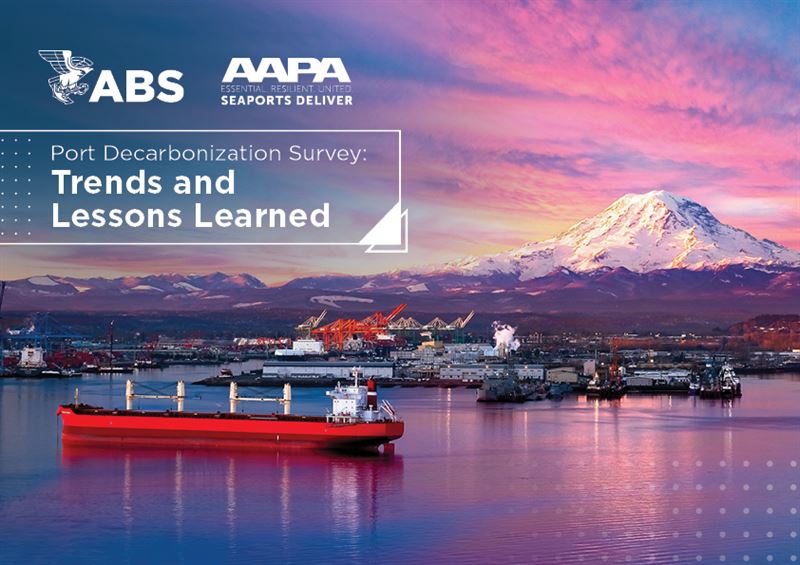Groundbreaking Report from ABS and AAPA Shines Light on American Ports’ Readiness to Meet Decarbonization Demands
Breaking New Ground: ABS and AAPA Report Reveals American Ports' Decarbonization Readiness

(HOUSTON) While most American ports have decarbonization plans in place, a new report shows there are significant challenges to advancing emission-reduction projects, including financial constraints, low technology readiness and physical space limitations.
These are some of the most important conclusions drawn from Port Decarbonization Survey: Trends and Lessons Learned, a recent joint study from ABS and the American Association of Port Authorities (AAPA).
Based on input from AAPA members, the report is the result of a joint development project (JDP), an exclusive partnership between AAPA and ABS that included views from port authorities and vessel operations specialists.
“ABS is actively involved in a number of global infrastructure planning projects, particularly those that deal with electrification of ports and shore power connection technologies. In order for ABS to comprehend the capacity and interest in decarbonisation infrastructure at American ports, this paper offers a crucial benchmark. According to Panos Koutsourakis, Vice President, Global Sustainability at ABS, “ABS is uniquely positioned with our deep expertise in regulatory compliance and technological advancements to bring together diverse maritime stakeholders to advance the conversation around sustainability and emissions reduction strategies.”
This analysis demonstrates that certain ports are already spearheading emissions mitigation initiatives in alternative fuel and electrification choices. Maritime transportation is by nature a cleaner mode of transportation. Cary S. Davis, President and CEO of AAPA, stated, “With cooperation from public and private partners, AAPA intends to use this research to push for wise and realistic policies towards an increasingly sustainable future for the port and maritime industry.”
“The electrification of cargo-handling equipment is one of the many ways that the Georgia Ports Authority is committed to decarbonisation,” stated Tiffoni Buckle McCartney, the organization’s manager of corporate sustainability and chair of the AAPA Environment Committee. “This report will help policymakers understand what is needed to advance port decarbonisation and will help port staff nationwide learn from their colleagues.”
Download a copy of the report here and join ABS and AAPA for a webinar to discuss the findings in more detail. Register here.
About ABS
Setting the bar for safety and quality in design and construction is a priority for ABS, a top global supplier of classification and technical consultancy services to the marine and offshore sectors. ABS collaborates with clients and the industry to create accurate and affordable compliance, optimised performance, and operational efficiency for maritime and offshore assets. ABS is focused on the safe and practical implementation of cutting-edge technologies and digital solutions.
About AAPA
The Western Hemisphere’s port leaders and maritime industry partners, who are essential to the generation of jobs, global competitiveness, and economic growth, are united behind AAPA. AAPA member organisations support national policies and infrastructure investments in support of a robust global supply chain and a positive impact on people’s travel, employment, and commerce. They also connect small business owners, retailers, and manufacturers to the global marketplace.
